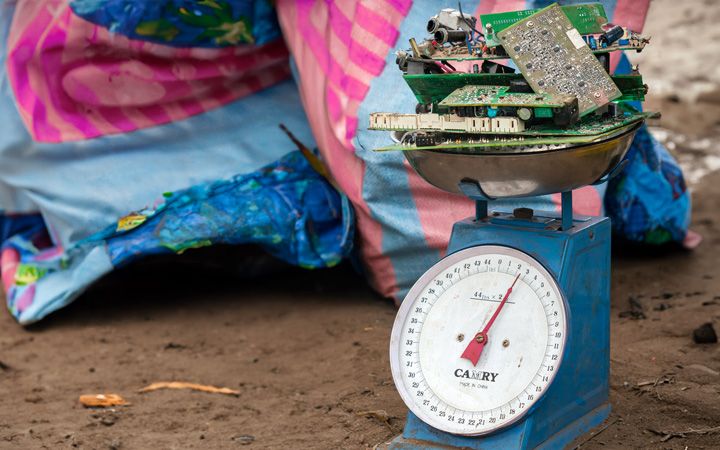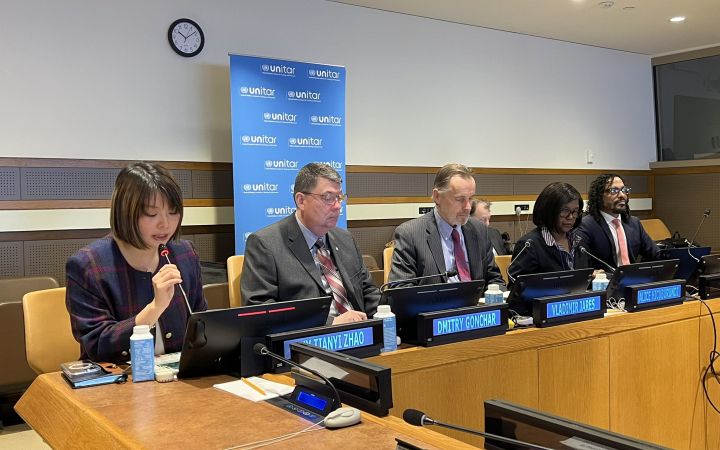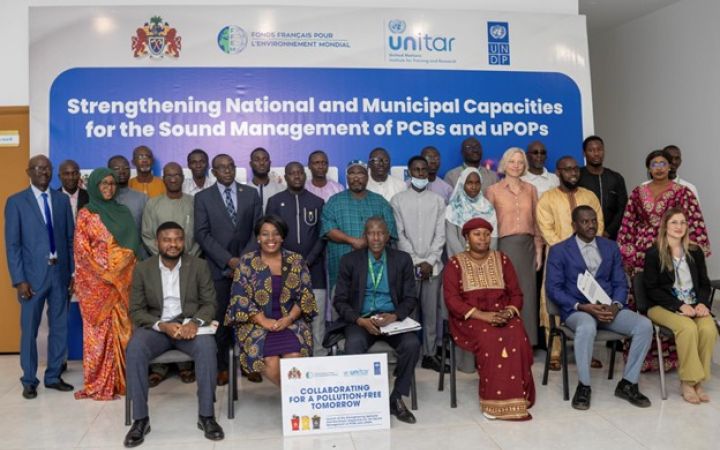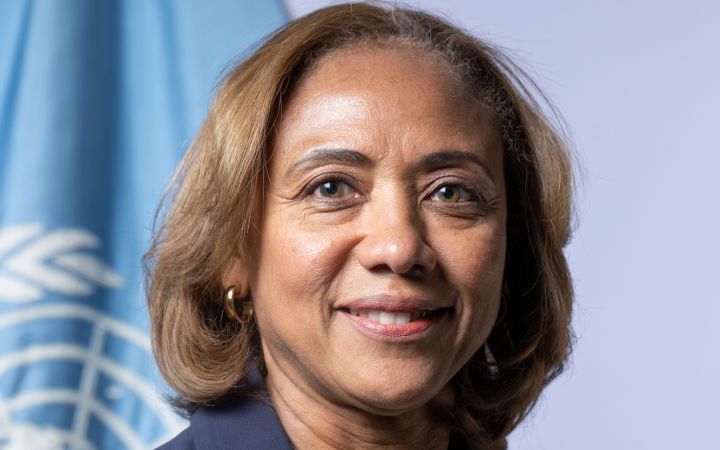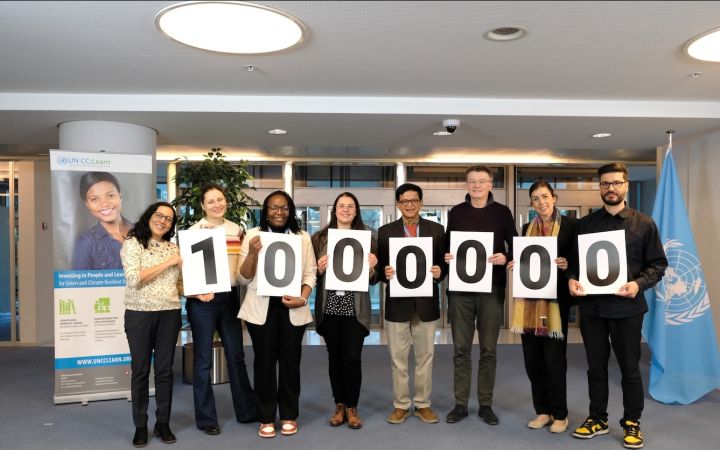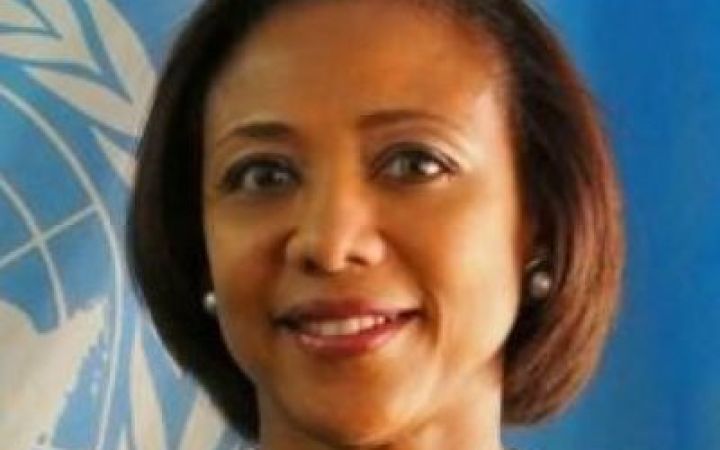Displaying 1 - 10 of 166
Electrical and electronic equipment have revolutionized how we live, work, and communicate, and are today integrated into our daily lives. However, as this equipment reaches the end of its life cycle, e-waste generation is inevitable. Recognizing the need to address e-waste generation and recyclability, UNITAR Sustainable Cycles (SCYCLE) Programme and Microsoft joined forces to tackle this issue. The collaboration, rooted in a shared vision for sustainability, has yielded tangible results.
5 May 2025, Geneva, Switzerland - We're pleased to announce that UNITAR has officially joined the Villars Institute and the Global Learning Council as a co-founder of the Global Learning Conference — a powerful partnership united by a shared mission to shape the future of education and lifelong learning.
24 March 2025, New York, USA – On March 24, 2025, the United Nations Institute for Training and Research office in New York, in collaboration with the Division for Ocean Affairs and the Law of the Sea (DOALOS) of the UN Office of Legal Affairs, hosted a briefing for delegates on Oceans and the Law of the Sea. The session provided an overview of the legal frameworks governing ocean governance, with a focus on the United Nations Convention on the Law of the Sea (UNCLOS) and its related agreements. A total of 85 participants attended the event in person, underscoring the continued interest and importance of ocean governance in multilateral diplomacy.
13 March 2025, Banjul, The Gambia - In an ambitious effort to address chemicals and waste management challenges in The Gambia, the United Nations Development Programme (UNDP), the French Facility for Global Environment (FFEM), the United Nations Institute for Training and Research (UNITAR), the National Environment Agency (NEA) of the Government of The Gambia, and other stakeholders have partnered to improve The Gambia’s capacity to effectively manage polychlorinated biphenyls (PCBs) and unintentional persistent organic pollutants (uPOPs) through the project "Strengthening National and Municipal Capacities for the Sound Management of PCBs and uPOPs in The Gambia". The project was launched in Banjul, The Gambia, on 5 March 2025, bringing together stakeholders from international organizations, government agencies, private sector, academia, civil society and non-governmental organizations, local communities and the media.
8 March 2025, Geneva, Switzerland - On this International Women’s Day, I am pleased to announce that I joined the International Gender Champions. Today, we must all answer the call to action to achieve a future where the rights, equality, and empowerment of all women and girls are fully realized. The theme, For ALL Women and Girls: Rights. Equality. Empowerment., serves as a powerful reminder that gender equality is not just a goal—it is a necessity.
22 February 2025, Geneva, Switzerland – The United Nations Institute for Training and Research (UNITAR) is pleased to announce that Michelle Gyles-McDonnough has officially assumed office as its new Executive Director. She succeeds Nikhil Seth of India, whose mandate concluded on 31 January 2025.
21 January 2025, Geneva, Switzerland - Last week, the UN CC:Learn e-learning platform received its 1,000,000th registration. This significant achievement highlights the growing importance of UN CC:Learn as the go-to place for high-quality and up-to-date learning on climate change, green economy and circular economy.
16 December 2024, New York, USA - United Nations Secretary-General António Guterres announced today the appointment of Michelle Gyles-McDonnough of Jamaica as the new Executive Director of the United Nations Institute for Training and Research (UNITAR). She will officially assume her duties on 22 February 2025, succeeding Nikhil Seth of India, to whom the Secretary-General expressed profound gratitude for his dedication and contributions to the United Nations.
24 October 2024, In September, Member States came together to adopt a visionary Pact for the Future aimed at aligning international efforts with contemporary realities and future challenges. Today, on UN Day, the six research and training institutes of the United Nations reaffirm their commitment to supporting the Pact of the Future through specialized knowledge, learning, research and training for the UN system – benefitting the world as a whole.
This story is about one of the two radio programmes that has sparked a wave of environmental consciousness across Zimbabwe, educating its listeners and fostering a nationwide discussion on climate change. Based on interviews with three different individuals—the radio host, an interviewer, and a teacher—the story is explored through their unique perspectives, showcasing how the program has influenced both its creators and educators who engage with it. By providing accessible, engaging content, the show was a vital source of climate change education for a wide audience, from urban centres to remote rural communities. Its ability to spark meaningful dialogue has fostered a nationwide discussion on critical environmental issues, inspiring listeners to become more aware of their impact on the planet and take action in their daily lives.


